Accepting love after trauma is a feeling not a lot of people understand. You are often regarded as someone uptight and arrogant who is playing hard to get. But little do they know about the battle going on inside you where you are desperate to feel loved, but you are not being able to let go of your fear and trauma.
When you feel uncomfortable accepting love, it doesn’t mean that you don’t believe in it, it’s just that you find it hard to believe that love is not supposed to hurt. Because of your traumatic experiences, you have come to associate love with pain, hurt and disappointment, and no matter how hard you try, you just can’t bring yourself to see that real love is never supposed to hurt, it’s supposed to make your heart feel full.
If you can relate to everything we spoke about till now, then let’s know more about the signs you have a hard time accepting love after trauma. Maybe reading these signs out loud can help you understand your pain and deal with it. So, let’s begin, shall we?
Related: How Life Changes After Being Broken By An Emotional Psychopath
7 Signs You’ve Difficulty Accepting Love After Trauma
1. You never feel at peace in any relationship, even if your partner is a genuinely good person.
Whenever you enter a new relationship, you just can’t bring yourself to be happy and peaceful in it. Your partner might be a very good person and genuinely loves you for who you are, but you find it very hard to let go of your past traumatic experiences and trust them. Because of your previous toxic relationship or childhood trauma, you find yourself constantly doubting your partner’s intentions and words.
Childhood trauma affects a relationship attachment to a huge extent, and not just that, even if you bring yourself to look at things in a positive and optimistic way, that mindset is most of the time, short-lived. Trying to read between the lines, being suspicious of your partner, not believing their compliments, and constantly thinking that they too will leave you, takes a toll on you and after a point, on your partner and relationship too.
2. You suffer from abandonment anxiety.
When you suffer from abandonment anxiety, you are either extremely clingy with your partner or you constantly push them away for fear of being abandoned. You want to love, but you are unable to love. You don’t want to be clingy, but you just can’t help it. You don’t mean to push them away, but you are too scared to have your heart broken again.
This is what trauma does to you. It takes away all your joy, happiness, and belief and leaves you a shell of the person you once were. Also, there’s no middle ground. You will either feel completely dependent on your partner, or you will refuse to accept their love and support.
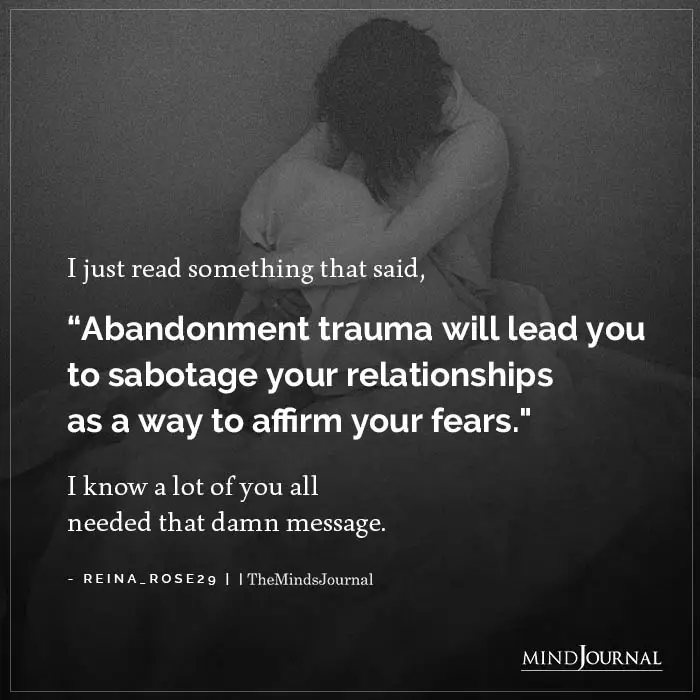
3. You look for true love in the wrong people.
Looking for love in the wrong kind of people is one of the biggest signs that you have trouble accepting love after trauma. Be it traumatic childhood experiences, or past toxic relationships, because you have learned that love is supposed to be painful, you chase people who treat you like garbage.
You refuse to understand that you deserve better; you keep on falling for people who are not good for you and like every time you are the one who is left with a broken heart. The more you get hurt and disappointed, the more you think that this is what love is supposed to feel like and that you will never be happy again in your life.
Related: 7 Truths About Life After An Abusive Relationship
4. You experience splitting.
Splitting happens when you tend to see things from a very black-and-white point of view, and that too on an unconscious level. What you feel for someone right now might suddenly change in the next moment. For example, you might feel happy and loved with your partner but just a few minutes later, you will find yourself feeling annoyed with them.
Almost all the time, your emotions are all over the place and even though you realize this, you can’t seem to understand what to do to feel more emotionally stable. Splitting makes you feel even more emotionally tormented and unstable and this leads to further complications in your relationship.
5. You experience traumatic flashbacks.
It’s not easy to let go of the past, especially when you have had a very traumatic one. If you have grown up with abusive parents, it can be particularly challenging to break out of that traumatic loop because it’s your parents after all. Forgetting how they have treated you is hard because that is the only kind of “love” you have known since you came into this world.
Being in toxic and abusive relationships can also destroy your mental and emotional health. You keep on reliving those bad times and this keeps you in a vicious cycle of traumatic and painful memories. Your flashbacks are intrusive and intense and these recollections can be extremely distressing and unwelcome.
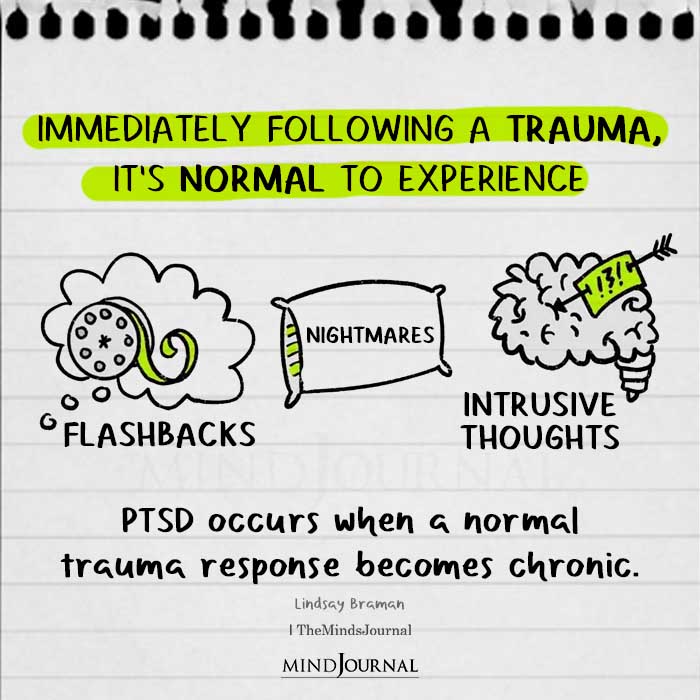
6. You have self-harming and self-numbing tendencies.
When it comes too difficult to deal with the pain of the past, you give in to harmful things, hoping they will help you deal with it all, or rather numb you from it all. Be it physical self-harm or emotional self-harm, the impact is all the same – it propels you further into self-destruction.
Engaging in toxic practices might make you feel better in the short term, but unfortunately, it will prove to be really harmful to you in the long run. You can run away from your true feelings for some time, but after a point, they are bound to catch up to you. Substance abuse and addictions are never going to help you live a happy life, rather they will just make things worse and even harder to deal with.
Related: 8 Heartbreaking Thoughts You Face As An Adult Survivor of Child Sexual Abuse
7. You are racked by guilt all the time.
This is one of the major reasons you’ve difficulty accepting love in adulthood. You feel guilty for not seeing the signs earlier. You feel guilty for not being strong enough to leave them sooner. You feel guilty for not moving on faster. You feel guilty for getting involved with them in the first place. And this one is probably the most painful one, you feel guilty for not being a “better” son/daughter to your parents.
You keep on berating yourself for the “mistakes” you made, not realizing that none of it was your fault; you were just a victim of your circumstances. It was not you who failed them, THEY are the ones who failed you!
The next time you ask yourself, “Why am I afraid to accept love?”, remember that you have gone through a lot in your life, and beating yourself up about it all the time is only going to hurt you more.
It’s hard accepting love when you have been through trauma, but you know something? It will be okay. You will be okay. You are not your trauma, and you are more than your trauma. You are so much more than your toxic relationships and parental neglect. It might be hard to see this now, but trust me when I tell you this: you deserve all the good things in life and so much more.
Want to know more about accepting love after trauma? Check this video out below!
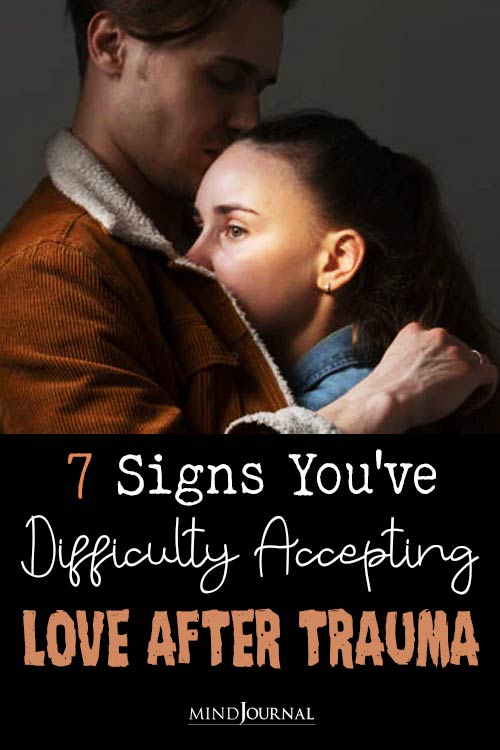
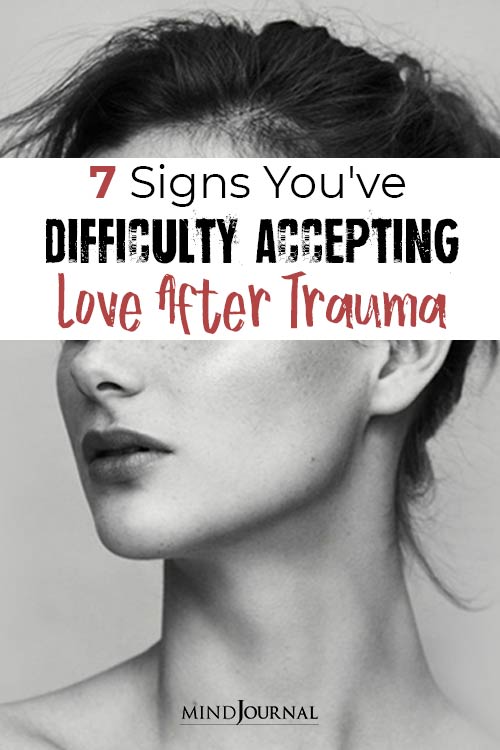
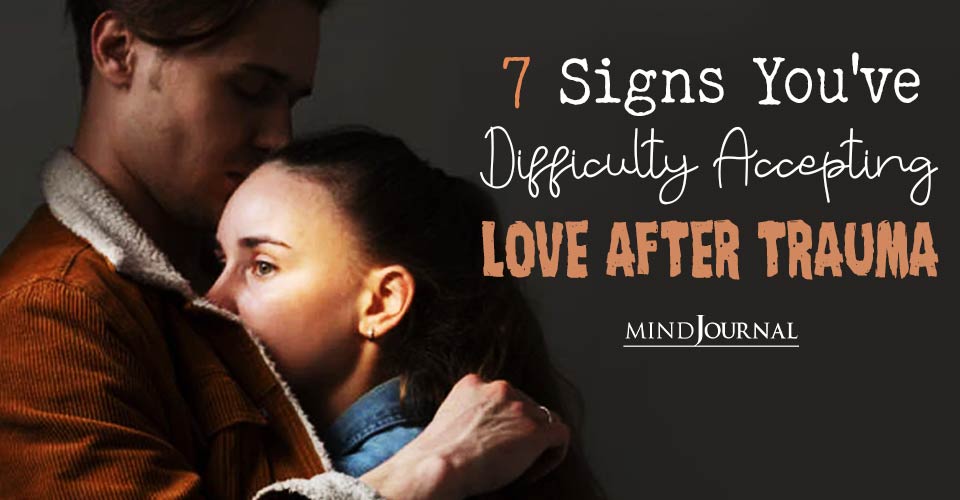





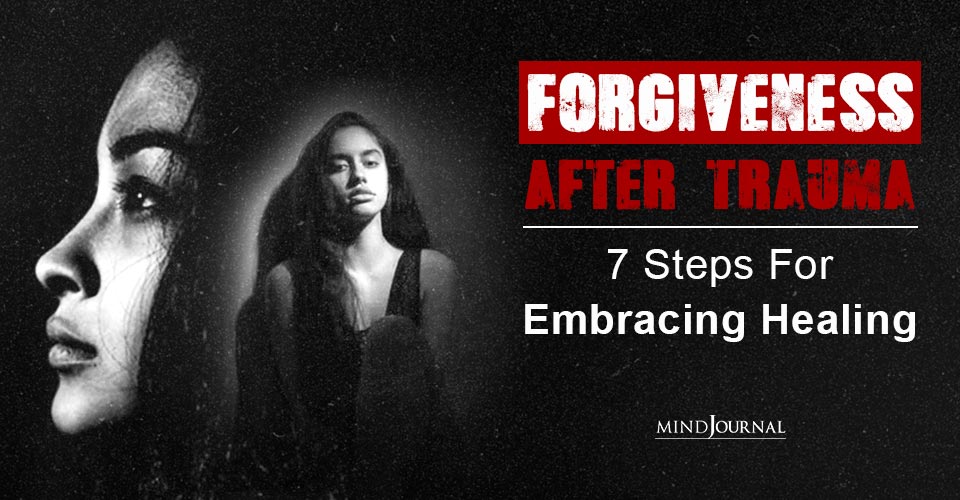

Leave a Reply
You must be logged in to post a comment.